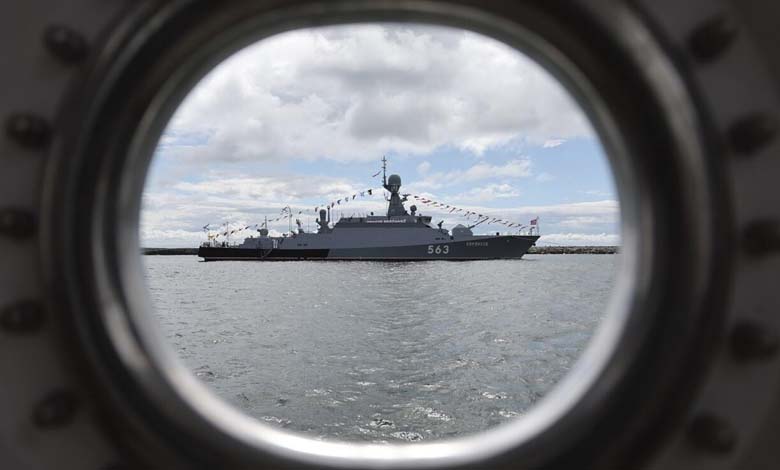Russia Plans to Acquire Rights to Deep-Water Port in Tobruk
A report by the Washington Institute for Near East Policy confirms that Moscow is seeking to station nuclear attack submarines in Tobruk to pressure the West.

Several reports indicate a growing Russian role in destabilizing the region by supporting groups opposed to American and Western presence in Libya, Yemen, and Sudan. They also reveal Russian pressure on Libyan National Army Commander Khalifa Haftar to grant Moscow rights to the deep-water port in Tobruk to house nuclear attack submarines, in an attempt to blackmail the West amid the conflict in Ukraine and Western and American efforts to arm the Ukrainian army with advanced weapons, including F-16 fighters.
The Washington Institute for Near East Policy stated in a report that the arming of Libyan groups and the transfer of vast amounts of military equipment, as well as rumors about the development of missile capabilities by the Houthis in Yemen, are among the signs of Russia’s attempt to undermine stability in the region and contain Western and American influence and interests.
The American institute’s researcher, Anna Borshchevskaya, revealed in a report titled “Russia’s Strategic Approach to Arming its Anti-American Proxies” how Moscow arms anti-Western forces, especially in Libya. She explained that Putin has managed to protect Russian interests by establishing relations with the Libyan National Army during the 2019 conflict and by attempting to engage with forces in western Libya.
She noted the development of relations between the Russians and the authorities in eastern Libya, particularly on the military side, despite some caution from the Kremlin towards Haftar, who maintains communication with Washington and Western powers.
She mentioned the visit of Russian Deputy Defense Minister Yunus-Bek Yevkurov to Haftar, where equipment and weapons were transferred from the port of Tartous in Syria to the port of Tobruk.
Russian efforts to obtain rights to the deep-water port in Tobruk follow attempts to control airports for smuggling weapons, fuel, medicines, and gold to finance Russian wars in Ukraine and Africa, particularly in the Sahel region.
The institute highlighted the Russian plan to use Libya as a base to extend its influence in the Sahel region and destabilize the area through Wagner mercenaries, as well as exploiting anti-Western and anti-American sentiments and supporting coups in Mali, Burkina Faso, and Niger.
The coup leaders in these countries have sought to enlist Russian experts and advisors to maintain their power in the face of Western pressures and threats.
This month, a report by the French newspaper “Le Monde” revealed frequent visits by delegations from the Libyan Eastern Command to Sahel countries aimed at strengthening diplomatic relations with military regimes in Burkina Faso, Chad, and Niger.
-
“Serious Mistake”… Russia Threatens “Military Response” to “German Missiles”
-
After Putin’s Statements… What is the Risk of Amending Russia’s Nuclear Doctrine?
The United States has expressed serious concerns about the military cooperation between the Russian and Libyan armies, specifically reports of Russian troops unloading military equipment at the port of Tobruk.
Wagner elements, numbering between 2,000 and 2,500, are stationed at several military sites in Libya, including the Al-Khums airbase, its maritime port, the Jufra airbase, and have extended southwest, where they are based at the Brak al-Shati airbase (700 km south of Tripoli).
-
“The Deadly Lake”.. The Ghost of the Cold War Haunts a Russian Region
-
“Nuclear Doctrine”… Russia Hints at a “World-Threatening” Amendment
A recently published German report revealed Russia’s intention to establish a naval military base in Libya, raising Western concerns.











